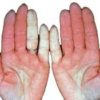Laryngitis and Ayurveda: A Natural Approach to Healing
Laryngitis and Ayurveda: A Natural Approach to Healing, characterized by the inflammation of the larynx (voice box), can result in hoarseness, loss of voice, and a sore throat. This condition may arise from various causes, including viral infections, overuse of the voice, allergens, or irritants such as smoke. While conventional medicine offers treatments like rest, hydration, and anti-inflammatory medications, Ayurveda presents a holistic and natural approach to managing laryngitis.
Understanding Laryngitis in Ayurveda
Ayurveda, an ancient Indian system of medicine, views health as a balance of three doshas: Vata, Pitta, and Kapha. Each dosha represents different bodily functions and energies. Laryngitis is often associated with an imbalance in these doshas, particularly an excess of Pitta due to heat and inflammation in the throat area.
Causes of Laryngitis in Ayurvedic Terms

- Viral Infections: The common cold or flu can lead to laryngitis, which Ayurveda attributes to a disturbance in the Kapha dosha, resulting in mucus buildup and inflammation.
- Overuse of Voice: Excessive shouting or speaking can aggravate Pitta, leading to irritation and swelling of the larynx.
- Allergies and Irritants: Exposure to allergens, smoke, or strong odors can lead to inflammation, often a sign of Kapha and Pitta imbalances.
- Dehydration: A lack of adequate hydration can dry out the throat, worsening the symptoms of laryngitis.
Ayurvedic Diagnosis
An Ayurvedic practitioner assesses the patient’s condition by examining the physical and emotional state, tongue, pulse, and overall constitution (Prakriti). This comprehensive approach helps identify which dosha is out of balance and tailor a specific treatment plan.
Signs of Imbalance
- Pitta Imbalance: Symptoms may include a burning sensation in the throat, irritation, and redness. The voice may be harsh, and there may be difficulty swallowing.
- Kapha Imbalance: This may present as a thick, mucous cough, lethargy, and a feeling of heaviness in the throat.
Ayurvedic Remedies for Laryngitis
1. Herbal Remedies
Ayurveda utilizes a range of herbs known for their anti-inflammatory and soothing properties. Here are some effective herbs for managing laryngitis:
- Turmeric: Known for its potent anti-inflammatory properties, turmeric can help soothe the throat. A warm turmeric milk (golden milk) is an excellent way to consume this herb.
- Licorice Root (Mulethi): This herb acts as a demulcent, providing a soothing effect on the throat. It can be consumed as a tea or used in lozenges.
- Ginger: With its warming properties, ginger can help alleviate throat irritation. A ginger tea with honey can be both soothing and beneficial.
- Tulsi (Holy Basil): Known for its antimicrobial properties, tulsi can help combat infections. A tulsi tea can also provide relief from symptoms.
- Slippery Elm: This herb is known for its mucilage content, which coats and soothes the throat.
2. Ayurvedic Formulations
Several Ayurvedic formulations can assist in managing laryngitis:
- Chyawanprash: A traditional herbal jam made with amla (Indian gooseberry) and other herbs, this formulation boosts immunity and supports throat health.
- Sitopaladi Churna: This blend of herbs is effective for respiratory health and can help soothe the throat.
3. Gargling and Steam Inhalation
- Salt Water Gargle: Gargling with warm salt water can reduce inflammation and kill bacteria in the throat.
- Steam Inhalation: Inhaling steam with added herbs like eucalyptus or menthol can help clear congestion and soothe the throat.
4. Lifestyle Modifications
To support recovery, certain lifestyle changes can be beneficial:
- Hydration: Drink plenty of warm fluids like herbal teas and soups to keep the throat moist.
- Voice Rest: Resting the voice is crucial to avoid further irritation. Whispering should also be avoided as it can strain the vocal cords.
- Avoid Irritants: Stay away from smoke, strong odors, and allergens that can exacerbate symptoms.
- Diet: Favor warm, cooked foods that are easy to swallow. Incorporate soothing foods like warm broths, stews, and mashed fruits.
5. Breathing Exercises and Yoga
Incorporating specific yoga practices and breathing exercises (pranayama) can enhance lung capacity and promote relaxation, further aiding recovery. Techniques such as Nadi Shodhana (alternate nostril breathing) can be particularly helpful.
Preventive Measures
To prevent laryngitis from recurring, consider the following:
- Maintain Hydration: Drink adequate water throughout the day to keep the throat lubricated.
- Voice Care: Practice vocal hygiene by avoiding yelling, shouting, or speaking for prolonged periods without breaks.
- Boost Immunity: Regularly consume immunity-boosting foods and herbs to prevent infections.
- Allergy Management: Identify and avoid allergens that may trigger symptoms.
Conclusion
Ayurveda offers a comprehensive and natural approach to managing laryngitis, focusing on balancing the doshas and using herbs and lifestyle changes to promote healing. While Ayurvedic remedies can significantly aid recovery, it is essential to consult a qualified practitioner for personalized guidance. Embracing the wisdom of Ayurveda not only addresses the immediate symptoms of laryngitis but also supports overall health and well-being.
By integrating these Ayurvedic principles into your lifestyle, you can empower yourself to maintain a healthy throat and voice, ensuring that laryngitis becomes a manageable part of your wellness journey rather than a recurring issue.








Leave a reply